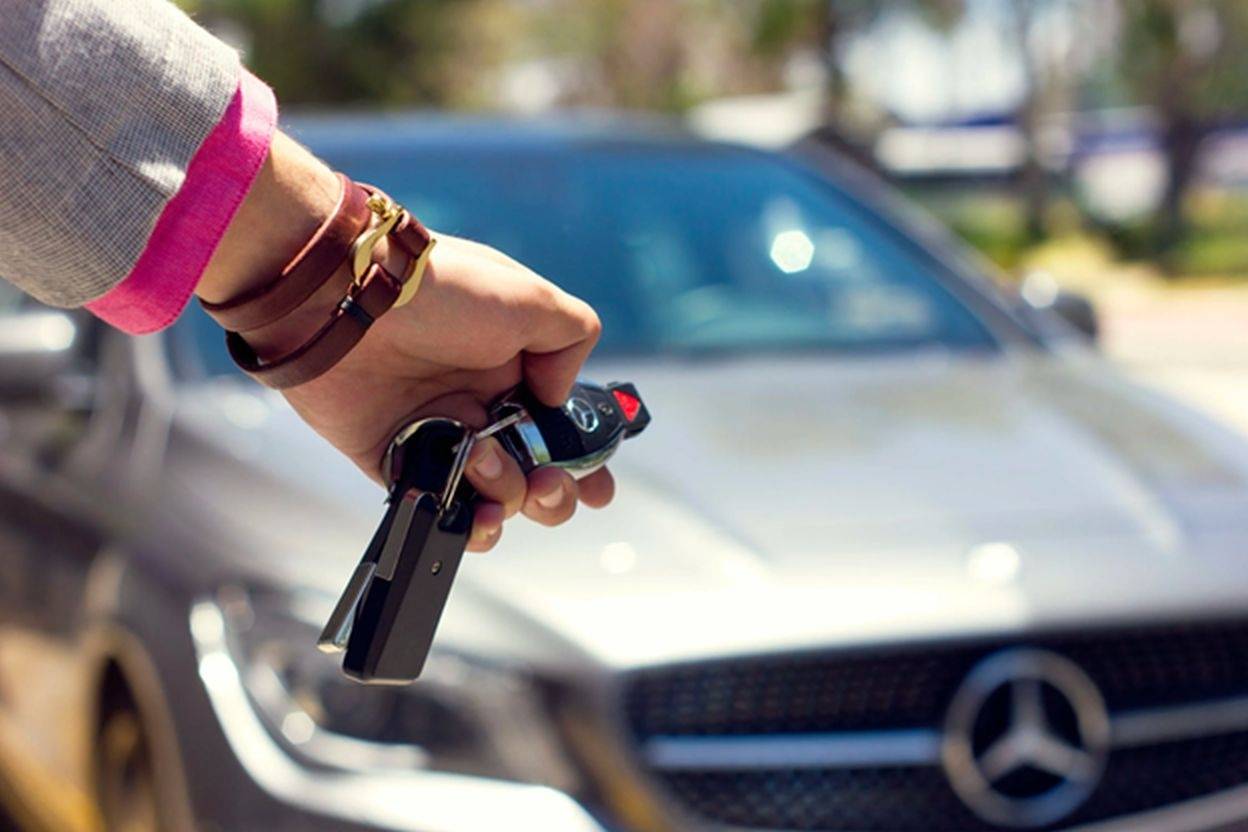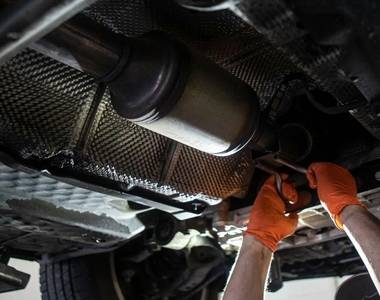When you sell your car, there are a lot of moving parts. Getting the process right requires some forethought and preparation. Knowing what not to do will also help you get the highest price for your car.

Avoid common pitfalls when selling your car with our guide. Learn how to attract the right buyers, protect yourself from scams and sell for the best price.
10 Mistakes to Avoid When Selling Your Car

(Source)
When you decide to sell your car, you’re going to want a few things:
- A smooth process
- A fast sale
- The most money possible
We're here to tell you selling your car and getting the most for it is possible. And there are plenty of different ways you can reach that goal quickly and without friction.
That all depends on how effectively you execute the process. You need to be know its value ahead of time, have all your documents in orderly fashion and be aware of the risks (especially when dealing with private buyers).
Over our years in the business, we've seen our fair share of sellers who find themselves in sticky situations. The good news is it's quite easy to avoid many of the common pitfalls when selling your car.
Selling Your Car: A Brief Checklist
It helps to know what the process will look like before you sell your car. This will vary depending on where and how you carry out the transaction. But practically every sale will include the following steps:
- Gathering and organising all the necessary documents
- Evaluating the condition of your car (ideally, with professional help)
- Determining its fair market value
- Setting a price based on its condition and market value
- Preparing your car for sale (having it detailed, taking photos, etc.)
- Finding a buyer
- Negotiating the sale price and terms
- Creating a bill of sale
- Receiving payment
- Transferring ownership and title with the V5C logbook
- Telling the DVLA you've sold your car after the transfer
- Cancelling your car insurance to fully finish the process
For help deciding how to sell your car (and the process involved with each method), check out our guide on the best ways to sell your car and get the most for it.
10 Top Mistakes to Avoid
Many sellers go into the process blindfolded. And that's something you definitely don't want to do.
There are lots of potential mistakes, as everyone has a unique experience when selling their car. These are the nine most crucial mistakes to avoid at all costs.
Failing to Research the Car's Value
Every step of the way, knowing the car's value ahead of time is immensely valuable.
- When you price your car for sale, setting a price too high means nobody will show interest. If it's too low, people will either think there's something wrong with it or you'll end up taking much less for it than you could have.
- In showings and evaluations with dealers and/or private buyers, not being able to answer essential questions about your car's worth will make you seem untrustworthy.
- During negotiation, a buyer who is more knowledgeable than you automatically has the upper hand. You may find yourself taken advantage of or tricked into a bad deal.
Valuing your car is an inexact science. There's no way to know for certain what the best price for it is. Particularly when selling a damaged car, it's impossible to predict the market's reaction with 100% accuracy.
There are, however, a few things you can do to ensure your pricing is aligned with the local market:
- Use our free car valuation calculator to get a ballpark estimate of your car's value based on its make, model, year and mileage.
- Look at dealership, classified and marketplace listings for cars similar to yours.
- Get an independent appraisal from a licensed mechanic at a garage or dealership you trust.
There are other variables that come into play as well. If you're trying to sell a salvage car, there's a specific way to calculate the value of salvage vehicles. And if you're selling a non-running car, it's a good idea to examine the value of all its parts (you can probably make more money parting it out).
Neglecting Maintenance and Presentation
Would you buy something pre-owned if it looked filthy and rundown? We wouldn't either.
When you show your car to interested buyers, they will see its condition first. Even shoppers on the pre-owned market want their new purchase to look nice. You could potentially fetch over a thousand pounds more for your car if it's in pristine condition.
Maintenance is something you should have been keeping up with throughout your time owning the vehicle. Regular oil changes, parts replacements (e.g., tyres, air filter, brake pads) and cleaning keep the car in its best possible condition. And most buyers will ask for proof of when you took it in.
When it comes time to show your car off, you'll need to go one step further. Have it professionally detailed both inside and out (steam wash, interior vacuum/shampooing).
Consider replacing worn-out parts as well (the low-cost ones, anyway). Old wiper blades and floor mats can make your car look in worse condition than it actually is, but they don't cost much to fix.
If there are a few small dents or scratches, it's a good idea to buff them out before selling the car, too.
Spending Too Much to Repair It
We recommend making small fixes that take your car to 100% condition. We don't recommend pouring a ton of money into it before selling.
The truth is, no amount of repairs and refurbishments will increase your car's value by more than the cost of the repairs themselves (this isn’t a house we’re talking about). In fact, the added value will come out to substantially less than the repair cost.
Unless you plan on keeping it for a few more years, don't go overboard with repairs before selling. If it has significant structural or electrical problems, you might be better off parting out your car.
Not Being Prepared With Documents
Having all your documents in order makes the process go a whole lot smoother. For your buyers, it also adds trust. We can practically guarantee that most of your buyers will lose interest if even one of your important documents is missing.
The two most crucial documents you need when selling your car are your V5C logbook and MOT certificate.
The 'New Keeper' slip from the V5C is what you'll use to transfer ownership to the new registered keeper. You'll also need info on the V5C when you tell the DVLA you've sold your car. You can sell your car without a V5C, but very very few people would agree to purchase it. It's a telltale sign the vehicle may have been stolen, so 99% of buyers won't trust it.
You can also sell your car without an MOT. But doing so means you're cutting out two-thirds of your potential buyers, according to SMMT data. Plus, it means they can’t drive off with the car since it isn’t roadworthy.
You can easily get a replacement logbook for £25 and replace your MOT certificate for free using the DVLA’s online services (linked above). The services are available between 7 p.m. and 8 p.m. each day.
Other important documents include:
- Parts receipts
- Service records
- Insurance claim history (if any)
- Independent vehicle inspections
These documents become particularly important if you're selling a written-off car or trying to sell a car with high mileage.
Being Dishonest About Your Car's True Condition
It's a bad idea to sell your car on false pretences. Besides the moral implications, it can land you in legal trouble if you do one of the following:
- Sell an unroadworthy vehicle without disclosing it
- Sell a car on finance without settling your outstanding loan balance first
- Clock your vehicle without letting the buyer know there are mileage disputes
- Falsify service records, such as lying about when parts were replaced
It's a criminal offence to do any of these things. If your buyer (or lending institution) finds out, they could end up suing you.
Ignoring Online Listings
If you're selling your car privately, you definitely want to consider listing it online. Sites like AutoTrader (paid) and Gumtree (free) are highly trusted and get thousands of local visitors each day.
A lot of the listings we see on these sites miss the mark, though. They're vague, have poor-quality pictures and lack details about the car’s condition.
If you're going to list your car online, make sure to include a lot of pictures (interior and exterior shots), descriptions of any modifications, accident reports and service records. Include the mileage and complete history.
The more transparent you are, the more likely you are to have qualified and interested buyers reach out to you. In the end, it'll be less to sift through.
Cancelling Your Insurance Before Selling the Car
A lot of buyers think, "Well, I'm not driving the car anyways. So I might as well save the money and cancel my insurance."
Don't do this.
We get it — insurance cover is expensive. But you need it for protection from things completely unrelated to your safety on the road.
If your car is stolen while you're actively trying to sell it, you will have no legal recourse or settlement payout if you don’t have insurance.
The same is true for a natural disaster, such as a fire. If something catastrophic happens to your car while it's parked in the garage, parking lot or spot on the street, you'll be completely out of luck.
Disregarding Safety Concerns
When you meet with strangers to show them your car, your safety is at risk. Some robbers are known to go after sellers with high-value listings on online classifieds and marketplaces.
They'll offer a certain amount of money, set the location and agree on a meeting time. Then, when they show up, they'll attack or rob you.
To prevent this from happening:
- Always meet in a public place with plenty of people around (ideally with some nearby security) like a grocery store, bank or mall parking lot.
- If possible, bring someone along (a family member or friend).
- Transact in broad daylight.
- Take a picture of their driving licence or photo ID before letting them test drive.
- Always maintain control over the keys. Offer to turn the ignition for them while you sit in the passenger seat.
There are also numerous car buying and selling scams you should be aware of. These range in complexity from finder's fees for an 'interested buyer' that doesn't exist to fake cheques and money orders.
Not Screening Potential Buyers
Most of the scammers and criminals out there are fairly easy to spot. Something will usually seem 'off' about them.
It could be strange responses or offers, poor grammar or a lack of basic car knowledge. If you're selling on Facebook Marketplace, having very few friends and information on their social profile could be an indicator.
Aside from potential scammers, failure to screen buyers could cause you to spend too much time with people who won't actually buy your car. You'll want to have some sort of vetting process.
Before meeting with a buyer, you need to know these things:
- Their situation (reason for buying)
- Timeline for making purchase
- Criteria for selecting a car
- Budget
- Expectations from the sale
- Preferred payment method
Taking the First Offer You Get
It's generally not a good idea to accept the first offer. The only exception would be if you're trying to sell your car as quickly as possible and don't care about the price.
That early in the process, you don't even know whether you've priced your car correctly. It could be too low. You won't know until you've had a few offers to compare.
If the first offer is within your desired range, keep the buyer warm and say you want to consider a few others. Be respectful of their timeline, but remind them you have others you've scheduled to show it to.
That said, don't act like you have better offers. Most buyers see right through this. It'll just turn them off.
Wrapping Up
A little preparation goes a long way when it comes to selling your car. To get the highest sale price for it, the most important things to remember are:
- Don't be too hasty. You might find yourself dealing with unqualified buyers (or worse, scammers) if you rush things.
- Be honest about the car's condition. Transparency pays off in the long run, as it prevents legal trouble and bad word of mouth.
- Consider all offers objectively. If you're receiving lots for lower than you hoped, you might want to reevaluate your price.
Selling your car doesn't have to be like pulling teeth. By avoiding these ten mistakes, we're confident you'll safely sell your car (and be content with the outcome).










